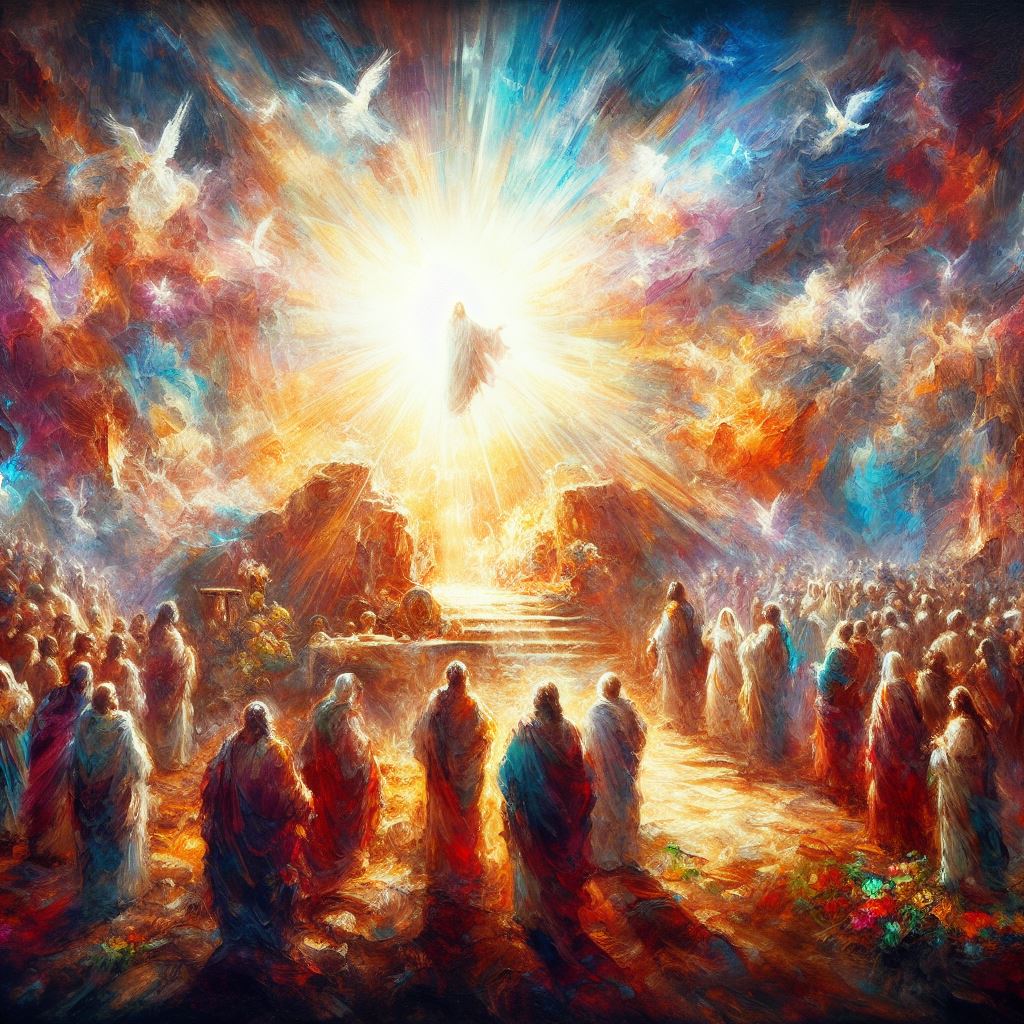
Exploring the significance of Christian holidays involves understanding their integral role in the lives of Christians worldwide. These holidays are viewed as more than mere dates on a calendar; they’re profound occasions for believers to reminisce and honor critical moments documented in biblical history. Such celebrations enable them to express their faith more vividly while fostering a sense of community and unity. The Christian year is filled with these holidays, introduced at specific intervals, which adds rhythm, a sort of ebb and flow, to religious existence. They’re periods filled with joyous celebration, thoughtful reflection, and devout reverence.
A trove of these holidays revolves around the life, hardships, sacrifice, and resurrection of Jesus Christ, an extraordinary figure who unsurprisingly sits at the core of Christian faith. Global celebrations such as Christmas and Easter are possibly the most widely recognized Christian holidays. Yet, their impact reverberates far beyond the confines of local religious communities. They’ve grown to become influential forces, shaping traditions and customs that span across cultures worldwide.
Speaking of these holidays, Christmas holds a special place in the hearts of believers, as it celebrates the birth of Jesus Christ. Details of this event can be found narrated in the Gospels of Matthew and Luke. On this day, December 25th, believers worldwide unite in their celebrations, awash with a palpable sense of hope and love. This auspicious day is earmarked by worship services at churches and celebratory gatherings at homes, where gift exchanges and festive meals create a warm and joyous atmosphere.
In contrast to the joyful celebration of Christmas, Easter is more introspective and solemn. It acknowledges the hardships faced by Jesus, leading up to his crucifixion and ultimate resurrection. Easter serves as a stark and potent reminder of Christ’s sacrifice for mankind and his victory over the inevitability of death. Falling on the Sunday following the spring equinox, the exact date of this holiday may differ each year. The celebration of Easter reinforces believers’ faith, underlines the transformative power of sacrifice, and reminds followers of the eternal nature of life despite bodily death.
Honoring Faith through Diverse Christian Festivals
Honoring faith is an integral part of Christianity, which is manifested through various diverse festivals. These include significant occasions such as Pentecost, Ash Wednesday, Good Friday, and the Advent period. Each of these carries a unique cultural and religious imprint, encapsulating critical aspects of Christian beliefs and emphasizing key stages of Christ’s life and teachings.
Celebrated at the 50-day benchmark following Easter Sunday, Pentecost is marked with distinction across the Christian community. It corresponds to the event when the Holy Spirit descended on the Apostles, as chronicled in the Book of Acts. The festival is considered by many as the inaugural event of the Christian Church, demonstrating elements of unity, diversity, and the transformational strength of the Holy Spirit.
Ash Wednesday is another equally significant festival, signaling the start of Lent – a 40-day period of introspection and penance that continues until Easter. The application of ashes on the foreheads of the devotees serves as a touching reminder of human mortality and highlights the importance of penance and repentance.
The Holy Week’s occurrence of Good Friday precedes Easter Sunday. It’s a day of deep reverence and solemnity as it pays tribute to Jesus’s crucifixion and his sacrifice at Calvary- an event that is at the heart of the Christian faith.
Distinct from all other Christian observances is Advent. This period represents a time of eager anticipation and careful preparation for the dual purpose of commemorating Jesus’s birth at Christmas, and the all-important event of Jesus’s return at the Second Coming. It’s traditionally observed through the lighting of candles on an Advent wreath, symbolizing the spiritual voyage that countless believers have undertaken throughout history.
Each festival distinct in its practice, yet they all embody the principles of Christianity in various ways. They serve both as a mirror reflecting the continual evolution of faith, and as a compass pointing towards the fundamentals of Christian belief. Through these diverse festivals, honoring faith is not just an act but a way of life for Christians across the world.
Key Christian Holidays
Christian holidays, grounded in personal belief and faith, originate from biblical times and are celebrated in ways that showcase the vibrant cultural and religious diversity within the community. The genesis of some holidays such as Christmas, commemorating the birth of Jesus, or Easter, marking his resurrection, aligns directly with specific biblical occurrences. Conversely, holidays like All Saints’ Day and Epiphany are products of the customs and paradigms of the first Christian followers.
Over time, and as Christianity diffused worldwide, these holidays adopted local customs and traditions. This adaptation resulted in emblematic variants which are testament to the rich tapestry of the global Christian community. These holidays, irrespective of their initial impetus or the unique manners in which they are observed, act as spiritual anchor points.
These milestones present believers with opportunities to introspect and reflect on their spiritual evolution. Observations can encompass fasting, feasting, prayers, or even processions. Nonetheless, all holidays share a common characteristic. They endow believers with the opportunity to express their love for God, reaffirm their spiritual commitment, and partake in established traditions, underpinning the essence of Christian communal identity.
Christian holidays are more than just recurring annual events. They represent spiritual, cultural landmarks, guiding followers on their faith’s trajectory. They tender a sense of belonging and solidarity among the vast diaspora of followers.
These holidays serve as a resonating echo of the deep-seated love, self-sacrifice, and redemption ideologies central to Christianity. They present an opportunity to partake in rituals and customs of profound significance that mark the essence and history of this global religious community. Thus, these holidays perpetuate an unbroken link connecting the rich past of Christianity with its vibrant present while pointing towards its future.